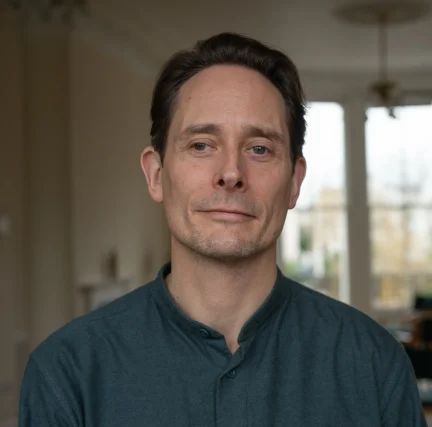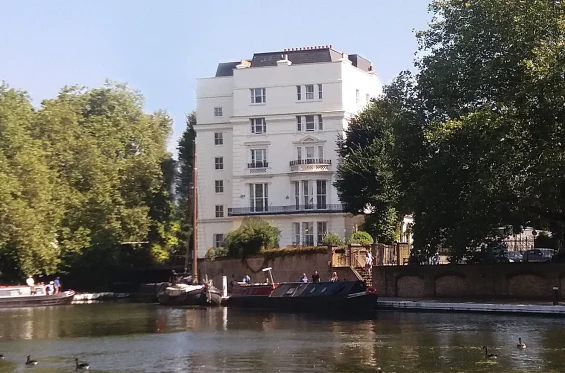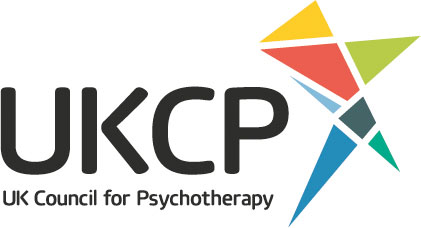About me
Hello, my name is Toby and I am a qualified psychotherapist based in Central London (Paddington & Farringdon).
I hold a postgraduate Diploma in Counselling and Psychotherapy, obtained at the Centre for Counselling and Psychotherapy Education in London.
I am also a registered member of the United Kingdom Council for Psychotherapy (UKCP) and the National Counselling and Psychotherapy Society (NCPS), which are accredited by the Professional Standards Authority.

Counselling and therapy in a safe, comfortable and private setting
Whatever challenges you are facing, therapy offers a supportive, confidential, and non-judgemental space to explore what you need to explore, gain perspective, and find a way forward.
One way therapy can help is by shining a light on the limiting beliefs and patterns which keep you stuck, preventing you from leading a fulfilling life. Understanding these patterns, and where they come from, can free you to make better choices, live more authentically, and fulfil more of your potential.
Therapy can also help you better understand your thoughts and feelings, learn coping skills, and develop greater compassion for yourself.

As an integrative psychotherapist, I draw upon a range of therapeutic approaches (Psychodynamic, Humanistic, Existential, Person-centred, Gestalt, Jungian, Transpersonal). This allows me to tailor the therapy to your needs, and the issues you are facing.
While the therapy I provide is predominantly talking therapy, I also use other ways of working if these feel helpful. These could include visualisations, breathwork, drawing, exploring dreams, and working with the body (without touch).

While therapy can sometimes be challenging, it should never be overwhelming. This is why I strive to offer a compassionate space in which you can feel safe enough to explore what you need to at your own pace.
Therapy is not about giving advice, or telling you what to do. You know best what you truly need, what gives your life meaning, what brings you joy. But therapy can help you reconnect to this inner wisdom, get clearer on the issues you are facing, and find your own solutions.

The journey of therapy can be immensely rewarding. What’s more, it is my belief that life’s challenges, while sometimes painful, can be profound opportunities for growth, an invitation to unfold more of who you really are.
If you have any questions about how I work, please get in touch.
What issues can therapy help with?
I have worked with people from many different backgrounds, on a wide range of issues.
These include:
Stress
Anxiety
Relationship difficulties
Family issues
Grief & loss
Addictive behaviours
Self-sabotage
Life transitions
Spirituality
Trauma and post-traumatic stress
Childhood abuse & neglect
Depression
Problems with confidence or self-esteem
Social anxiety
Issues with anger
Sexuality
Difficulties at work
Meaning & purpose

My location
I work from two locations in Central London.
Terapia Consultancy is located in a quiet courtyard close to Farringdon station, and within walking distance of Barbican and Chancery Lane tube stations.
The Centre for Counselling and Psychotherapy Education is located next to the Regent’s Canal in Little Venice, and is a short walk from Paddington station and Warwick Avenue tube.
In addition to providing face-to-face therapy, I also offer online sessions via Zoom.

Fees & availability
Sessions are 50 minutes, and usually take place weekly, either in-person or online. The fee for a session is £75.
I also provide a limited number of spaces for those on low-income. These fill up quickly so please email to check availability.
The initial assessment session usually takes between 60 and 75 minutes and costs £75. This is an opportunity for me to learn a bit more about you and the issues you are facing.
The assessment also gives us the chance to see if we are a good fit to work together.
Get in touch
Please feel free to contact me if you have any questions about the therapy, or how I work. I offer a free 15-minute call (phone / Zoom) to answer your questions.
This enables us to discuss the reasons you are thinking of coming to therapy, whether it could be helpful and whether I am the right therapist for you.
I will always try to answer enquiries within 24 hours, and all communications are strictly confidential.
Some frequently asked questions
While the two terms are often used interchangeably, counselling tends to refer to shorter-term work, perhaps several weeks or months. Counsellor and client may focus on a specific issue which the client is facing, this being agreed at the start. While counselling may involve some exploration of the client’s history, the focus tends to be much more on their present life situation.
Psychotherapy usually refers to longer term work, aimed at a deeper understanding of one’s emotions and patterns of behaviour. This involves exploring how early life experiences may be influencing you now. While psychotherapy aims at helping people feel better, it is also open to deeper questions such as Who am I deep down? What gives my life meaning? How did I become the person I am? Unlike counselling, which is more structured, psychotherapy tends to take a more open approach, working with what comes up in each session.
The number of sessions needed differs for everyone and depends on the depth of the issues being worked on. Most of the work I do with clients tends to be long-term and open-ended but if you are interested in short-term counselling, I am very happy to discuss this with you.
When we begin, we will agree an initial number of sessions, generally between 6 and 8. At the end of this period, we will review how it has been to work together, and consider what goals might be appropriate for the therapy moving forwards.
Ultimately, how long the therapy lasts is your decision, and I consider it important that it continue only as long as it benefits you.
With therapy it's important you feel free to talk about whatever you need to. Often, it is only once therapy gets underway that issues which need exploring become clear. Partners, family or friends, even though they want to help, will likely have their own ideas about what you need. They may also be connected to issues you need to explore meaning their presence could prevent you from speaking freely.
It is perfectly normal to feel anxious before coming for a session alone, but you will not be pushed to talk about anything you don’t feel ready to. However, you do need to be able to talk about what feels important. Because of this, I do not see clients with family or friends.
Confidentiality is one of the aspects of the therapist-client relationship that makes it possible to bring whatever needs to be explored, including things that may feel painful or embarrassing.
No therapist, however, can offer 100% confidentiality. There are some situations where risk must be disclosed, for instance if a child or vulnerable adult is in danger. Also, if I have reason to believe someone is going to seriously harm themselves, or do something that could harm others, it may be necessary and ethical for me to break confidentiality. However, this course of action is rare, and I would always endeavour to discuss it with you first.
At the assessment stage, I explain my policy regarding confidentiality in more detail. This is also an opportunity for you to ask any questions or clarify anything you feel concerned about.
I offer a free 15-minute call (phone or video) to answer any questions you might have about the therapy and how I work. The next step is to arrange an assessment, where I can learn a bit more about you and the issues you are facing. The assessment is also a chance for us to get a sense of what working together could be like.
If we decide to go ahead with the therapy, we will agree an initial number of sessions, typically around 6-8, after which we will review how it has been and potentially set some goals moving forwards.
In the assessment, we will explore your reasons for seeking therapy, a bit about your life history, and what you are hoping to achieve. It is an important opportunity for us to get to know each other and make sure I am the right therapist for you.
The assessment is different to a normal therapy session. To understand your needs, I will need to ask questions not only about your current situation but about your history, including childhood and family. I will take notes during the session, which will not happen in regular therapy sessions. I will also ask for information about your mental health history, including any diagnoses you might have been given, or medication you have been prescribed.
Occasionally, it could be that another therapist, perhaps one who specialises in an area relevant to the issues you are facing, could serve your needs better. In such cases, I will endeavour to help you seek the support you need.
If you need to cancel a session, I ask for 3 days’ notice by email. In the case of cancellations made with less than 3 days’ notice, or if scheduled sessions are missed, the full fee is payable.
While there will of course be times when you have to cancel a session, or take breaks for holidays, therapy does require consistency and commitment. This begins with therapist and client agreeing to meet each week at a particular time, creating a dedicated space which is there for you to explore whatever you need to.
I hold a Postgraduate Diploma in Counselling and Psychotherapy, obtained from the Centre for Counselling and Psychotherapy Education in London.
I am also a certified practitioner of Applied EFT (Emotional Freedom Technique or tapping).
I am a registered member of the United Kingdom Council for Psychotherapy and the National Counselling and Psychotherapy Society, which are accredited by the Professional Standards Authority. As a member of UKCP, I abide by their professional code of ethics. I also hold a current and clear DBS check (Disclosure and Barring Service).
I have clinical experience working with a broad range of client groups in a variety of therapeutic settings. These include:
- CCPE Clinic, London
- FreshStart Psychotherapy, London
- The Caravan Counselling Service, St James, London
- Maytree Suicide Respite Centre, London
I am trained as an integrative transpersonal counsellor and psychotherapist. Being integrative means I draw upon different therapeutic approaches. These include:
- Psychodynamic: looks at how current relationships and emotions are influenced by unconscious patterns and past experiences, particularly those of childhood.
- Humanistic: views every person as having an innate drive to realize their potential and become their true self. This approach values authenticity, empathy, and warmth.
- Existential: explores the fundamental questions and challenges of human existence such as freedom, death, responsibility, meaning and purpose.
- Transpersonal: a holistic approach that goes beyond individual psychology to explore the transcendent side of human experience. This approach is open to the role played by the spiritual in an individual’s life, whatever this means for them. My training had a particular focus on transpersonal ways of working.
The UK Council for Psychotherapy (UKCP) prohibits using client testimonials in advertising. This is to uphold the fundamental principles of confidentiality, privacy, and the protection of the therapeutic relationship.
© Toby Winter Psychotherapy
powered by WebHealer
